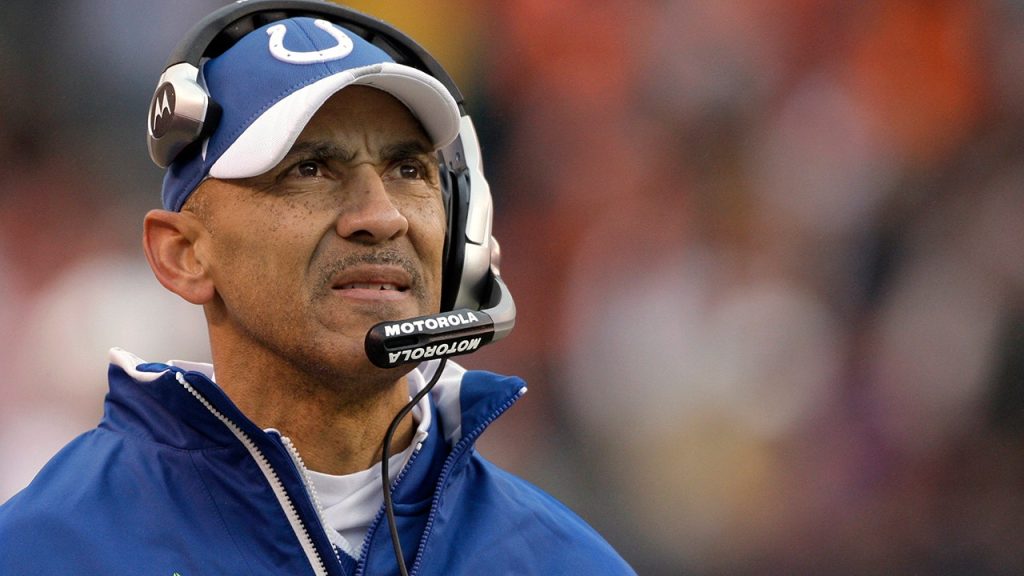The discourse surrounding the pervasiveness of profanity in NFL locker rooms ignited recently when former Green Bay Packers executive Andrew Brandt posed a challenge to NFL head coaches: deliver a post-game locker room speech without resorting to the ubiquitous “f-word.” Brandt’s provocation on social media sparked a conversation about the efficacy and necessity of such language in motivating professional athletes, particularly in the high-stakes, emotionally charged environment of professional football. His skepticism about the feasibility of such a feat implied a deeply ingrained acceptance of cursing as an integral part of the coaching lexicon.
Hall of Fame coach Tony Dungy, however, offered a compelling counterpoint, asserting that not only is curse-free coaching possible but that he had successfully employed such a method throughout his illustrious career. Dungy recounted his initial team meetings with both the Tampa Bay Buccaneers and the Indianapolis Colts, where he posed a direct question to his players: did they require verbal abuse and profanity to perform at their best? The resounding silence in both instances affirmed his belief that respect and clear communication, rather than expletive-laden tirades, were the keys to unlocking player potential. He pointed to his own track record, replete with playoff appearances and a Super Bowl championship, as irrefutable evidence of the effectiveness of his approach.
Dungy’s coaching philosophy, built on mutual respect and a belief in the intrinsic motivation of his players, stands in stark contrast to the often-portrayed image of the fiery, authoritarian coach who relies on intimidation and profanity to inspire performance. His approach underscores the potential for a more nuanced and positive coaching style, one that prioritizes clear communication, trust, and a deep understanding of player psychology over the reliance on emotionally charged outbursts. This alternative approach challenges the conventional wisdom that equates aggressive language with effective leadership, suggesting that a more respectful and empathetic approach can yield equally impressive, if not superior, results.
The debate sparked by Brandt and Dungy highlights a broader discussion about the evolving landscape of leadership in professional sports. While the old-school, hard-nosed coaching style, characterized by yelling and cursing, may still have its adherents, the success of coaches like Dungy demonstrates the growing recognition of the importance of emotional intelligence and positive reinforcement in player development. This shift reflects a changing understanding of the athlete-coach relationship, moving away from a purely transactional dynamic towards a more collaborative and supportive one.
Dungy’s success with the Buccaneers and Colts, culminating in a Super Bowl victory, provides a compelling case study for the effectiveness of his positive coaching philosophy. He took over a Buccaneers team mired in mediocrity and transformed them into playoff contenders. His subsequent tenure with the Colts, marked by consistent regular season success and a Super Bowl XLI triumph, further solidified his reputation as one of the league’s most respected and effective coaches. His ability to connect with players on a personal level, foster a positive team environment, and inspire peak performance without resorting to verbal abuse serves as a powerful testament to the power of positive leadership.
The conversation initiated by Brandt’s challenge and Dungy’s response transcends the realm of professional football and speaks to the broader principles of leadership in any context. It raises important questions about the most effective ways to motivate and inspire individuals, highlighting the potential benefits of a more empathetic and respectful approach. While the use of profanity in the workplace, particularly in high-pressure environments, may be a common occurrence, Dungy’s experience suggests that it is not a prerequisite for success. His legacy serves as a powerful reminder that true leadership lies not in the volume or vulgarity of one’s language, but in the ability to connect with individuals, build trust, and inspire them to achieve their full potential.


